Streak Club is a place for hosting and participating in creative streaks.
A puzzle adventure game in the vein of Papers, Please about a pharmacist dealing with patients and their prescriptions.
Like in Papers, Please, customers come in one at a time, each of whom hands the pharmacist a doctor's prescription.

From here, the player must ensure the prescription as well as the prescribed medication is correct. If everything checks out, the player must then dispense the drug in the correct amount.
The first step would be to ask the customer's details, ensuring they match up with what's written - this generally includes their name and address. Next, they must check that the date of the prescription is within the appropriate time frame (a year old prescription is no longer valid, for example).
Assuming the patient's details and the validity of the prescription are all sound, you must then ensure the prescribed medication is correct - general practitioners are not usually allowed to prescribe odd dosages, for example, while specialists are. If you feel you have reason to believe there was a fault in the prescription, you may call the doctor to cross check it - though doing so on a non-faulty prescription in some cases will get you a penalty (doctors don't like to be hassled unless it's an emergency). On the contrary, dealing out incorrect drugs or dosages may lead to health problems in the patient, and in a worst case scenario may cause a death or severe injury.
If you believe the prescribed medication is correct, or if you've cross checked the information with a doctor, you must proceed to dispense the drugs in the correct amount. This part of the game plays out like a crafting mini-game in which you must locate the correct drug(s) and dole the correct amount out, or compound them with others using a mortar and pestle.
Once you're done, you counsel the patient on the drugs use, querying them for potential factors that may interfere with the drugs intended effect (such as allergies, and so on). You then hand out the medication to the patient, and on their way they go.
New patients must be entered into a database where all of their details and prescriptions are documented for future reference. A big part of the game includes cross referencing jargon / medical terms as well as patient details to ensure drugs don't interact with each other.
Like Papers, Please, customers will frequently revisit the pharmacy, where they may account their experiences (are the drugs working?) and so on. Cases where drugs may kill your patient may result in confrontations from the departed's family members and may cause dramas or even a Game Over if things get really nasty - whether somebody decides to get revenge by killing you, or by suing you for manslaughter.
Chaos theory and the butterfly effect are two thematic elements that the game builds on and is essential to the narrative and gameplay experience.
One may also see this as an educational game made for pharmacists to build virtual work experience before heading out into the actual work place.
I envision the art to be similar to Thirty Flights of Lovin' or Jazzpunk, where people are rendered as simple cardboard cutouts with different textures. This makes for a somewhat lighthearted and comical art style, yet is also economical as many wildly different characters can be made quickly and easily by changing the person's texture.

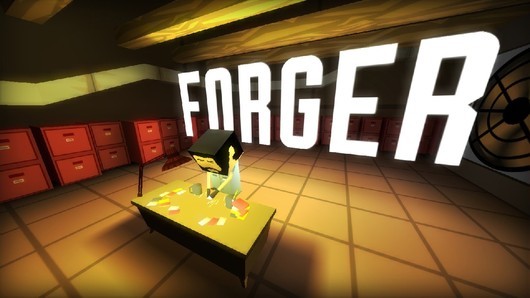
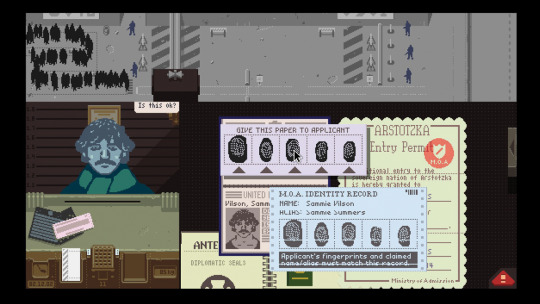
See these #gameidea posts on streak.club
See these #gameidea posts on tumblr.
This interactive character drama takes place over a set period of time (over a year, or a summer, or over 500 consecutive days), allowing for the narrative to jump back and forth in time in a non-linear manner.
The game plays in a modern adventure game fashion similar to Heavy Rain or the TellTale adventure games, with a focus on human interaction and character dialogue, similar to L.A. Noire.
The main gimmick is the ability to take the narrative back and forth in time. Think of the film (500) Days of Summer, with you being able to decide which "day" to travel to. The transitions will appear similar to that movie, as seen in this video:
Your choices in the past will affect the future. So rather than getting a prompt saying "this character will remember your choice(s)" - you can instead jump ahead and immediately see the repercussions of your choices.
Your ability to non linearly travel through the narrative might be limited in order to maintain some cohesion to the overall story.
I imagine the story being about a character trying to overcome the trials and tribulations of his work, social, and love life - similar to the film.
Much like the game Persona, time progression can be displayed through a calendar, where each day has a different weather and moon phase. You're limited to a certain number of actions each day - and must basically try to maximize the use of your time while making the appropriate choices to balance the three tiers of work / social / love.
This idea is one of many I have that tries to take a unique premise from a film and re-imagine it in an interactive context. Each respective medium has its own personal strength - films make use of linearity in the same way games make use of interactivity, for example - so sometimes these exercises don't always work. Still, there's value in exploring them!
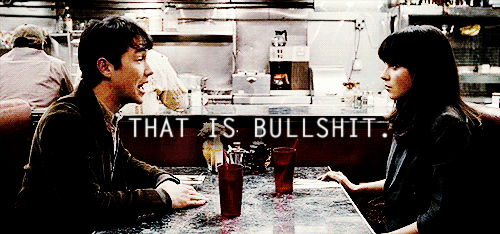
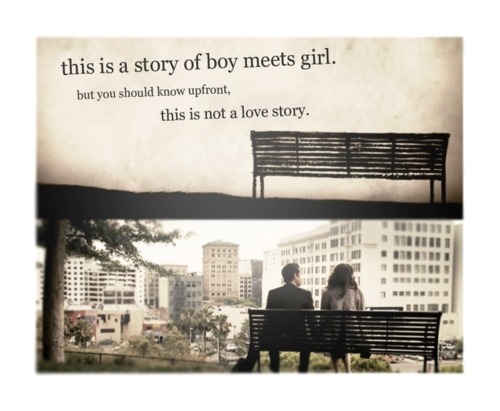
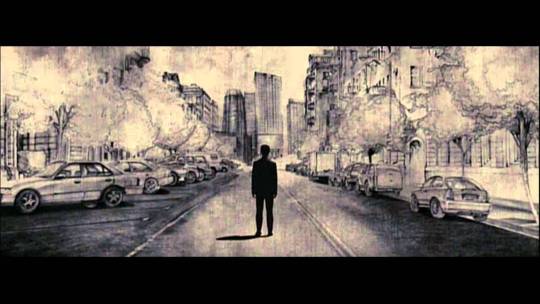
See these #gameidea posts on streak.club
See these #gameidea posts on tumblr.
You are a girl on the night before her first day of college. As she anxiously slips into the night's slumber, her subconscious thoughts overwhelm her -- grades, exams, boys, carbs, making friends, and so on. She enters the dream world with much on her mind.
The game is a 2D infinite runner that is the manifestation of her dreams and subconscious [on the night before her first college day].
Summary:
In this abstract fever dream, we see the girl's adversaries rendered as her greatest woes -- she will be dodging floating donuts (calories!) while trying to maintain a steady supply of coffee (without overdosing - doing so will speed her up uncontrollably, increasing the difficulty). Social encounters with other people can raise her embarrassment and trip her up.
She can pick up a variety of objects that affect her movement properties: an Umbrella will allow her to slow-fall, for example.
The Girl's speed will be determined by some score multiplier that tallies up when she picks up objects and performs certain moves of finesse/grace; such as landing perfectly, jumping through rainbow hoops, avoiding objects and gaining verticality. These moves can be cleverly named, appearing on the screen using snazzy fonts, colors, and graphics.
There will be consumable boosts, such as a taxi coupon that gives you a head start, or a Matrix-like power move that allows you to throw off nerds and stalkers in a spectacularly dramatic fashion, giving you a second chance when you lose. These boosts and power ups allow the girl to live through a momentary but dramatic power fantasy, which in turn gives her a confidence / morale boost.
The game is heavily based on Jetpack Joyride in terms of its gameplay and controls, but given a unique thematic and aesthetic presentation.
Preparation:
Like most runners, there will be a pre-game menu where you can customise your character and buy boosts. In this game, this is represented by the girl's bedroom. You can do things in your room to influence your dream in some way. Play some music in your room and it will influence the overall mood (perhaps influencing the RNG / encounters / DMW system). Keep the lights turned on and you may be weaker to begin with (lights make it harder to remain in a dream state) but might have an advantage against creepy crawlies. Open the window could have some consequences / advantages / disadvantages. Maybe depending on the season or the climate things could change. If you ate a steak dinner you could be thinking about steak...
Gimmick:
D.M.W: Digital Mind Wave - slot machine
Taken directly from Crisis Core on the PSP, this game would implement a slot machine that constantly plays in the background. This slot machine incorporates subconsciousness / emotions / memories. Can determine changes of the current themed area, the type of obstacles that you get, the type of props, the speed, the frequency of obstacles, the pickup you gain, temporary boosts / buffs, etc.
You can influence the DMW with your performance and with the purchase of items, and set up before you fall asleep. Things like her favorite or least favorite food can increase or decrease in frequency, or what have you. When you pass out it could be like the Crisis Core ending where it begins to malfunction (Your last hope! Can it help!?). The screen could slowly be pulling itself out as it does this: if the DMW fails to give you a second chance, it flashes backwards and you wake up in a cold sweat. Otherwise it zooms back in and you get your second chance.
daily from
Best streak: 1, Completion: 5%